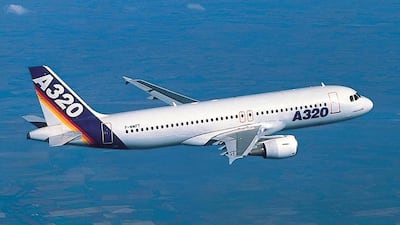Airbus by November this year will start delivering all aircraft from its US manufacturing facility in Mobile, Alabama, with sustainable aviation fuel as it seeks to reduce emissions.
Airbus, which is based in Toulouse, France, has reached an agreement with Florida-based Signature Flight Support, a fixed-base operation and distribution network for business aviation services, to supply sustainable aviation fuel (SAF) made from renewable sources to its facility in Mobile, the European plane maker said in a statement on Thursday.
Signature Flight Support will work in partnership with World Energy to provide the US-sourced SAF to Airbus, the statement said.
chairman and chief executive, Airbus Americas
“Delivering our Mobile-produced aircraft with SAF is an important, iterative step toward solving the carbon challenge,” said Jeff Knittel, chairman and chief executive of Airbus Americas.
“SAF is a positive contributor to enhanced sustainability in aviation since it enables up to an 80 per cent reduction of carbon dioxide across the fuel lifecycle. We are committed to making sustainable fuels an everyday reality with use on an increasingly larger scale, and this announcement is further evidence of that.”
The aviation sector came to a grinding halt as a result of the Covid-19 pandemic, but demand is beginning to recover because of the increased pace of vaccine distribution in many countries.
Aviation watchdog the International Air Transport Association, expects the outlook for global airlines to improve during the second half of the year, possibly resulting in an increase in aircraft deliveries.
All aircraft delivered to customers from the Alabama hub will be powered by a blend of SAF and conventional jet fuel from November this year, Airbus said.
“The initiative is a further step toward fulfilling Airbus’s commitment to carbon-neutral growth in the aviation sector,” the plane maker said.
Airbus delivers A220 and A320 family aircraft to US-based customers from its manufacturing facility in Mobile. Since 2016, the company has delivered more than 260 Airbus aircraft from Mobile, 54 of which have been turned over to airlines this year.
The aviation industry currently represents 2 per cent of global carbon dioxide emissions, according to the International Civil Aviation Organisation, but a forecast increase in passenger air traffic means it could add more pollution to the skies unless measures are taken rapidly. The sector is under mounting pressure to meet its promise to cut its carbon emissions to half of 2005 levels by 2050.
In February, Airbus unveiled the carbon footprint of its aircraft. The company calculated that the 863 planes that it delivered in 2019 will emit 740 million tonnes of carbon dioxide during an estimated 22 years in service. As a point of comparison, France is estimated to have emitted 441 million tonnes of carbon dioxide in 2019.
Airbus pointed out, however, that the efficiency of its planes is improving.
It calculated that the planes delivered in 2019 will produce on average 66.6 grams of carbon dioxide per passenger per kilometre. In 2020, that figure dropped to 63.5 grams per passenger kilometre.
The current commercial aircraft fleet, including older aircraft, is estimated to emit on average 90 grams per passenger kilometre, according to the NGO International Council on Clean Transportation.
It estimates that cars produce an average of 122 grams per kilometre, but that figure needs to be divided by the number of passengers in the vehicle to offer a real comparison.
Last year Airbus released three zero-emission concept planes powered by hydrogen that it said could enter service by 2035.
The plane manufacturer doubled its profit forecast for the year and aims to deliver more than 600 aircraft in 2021, with plans to launch an A350 freighter as global demand for jets picks up and travel rebounds from the coronavirus pandemic.
In July, the company raised its forecast for earnings before interest and tax for the full year to €4 billion ($4.75bn) from an earlier target of €2bn.
The company swung to an operating profit of €2.01bn in the second quarter from a loss of €1.23bn a year earlier, as revenue rose 70 per cent to €14.18bn.


